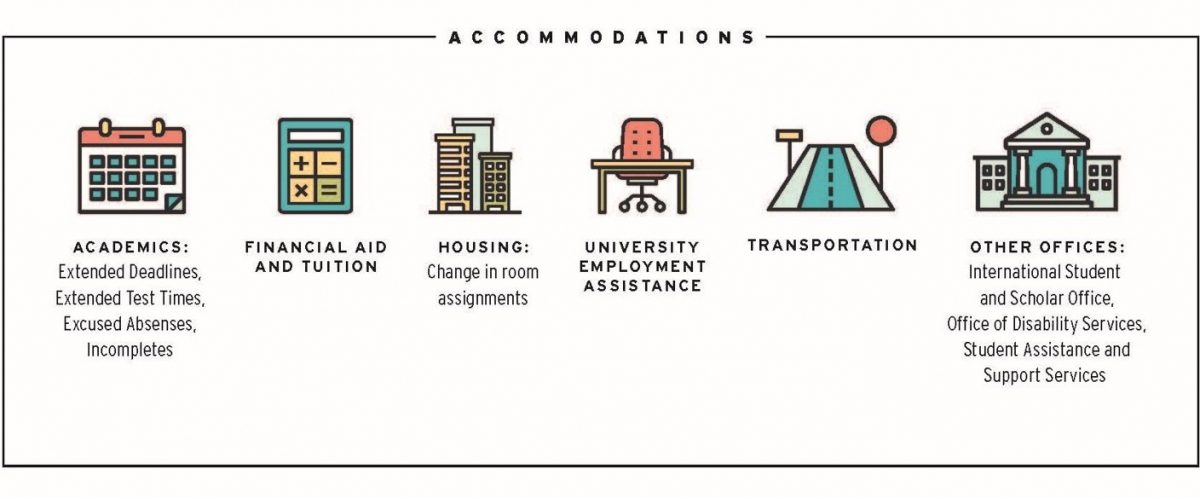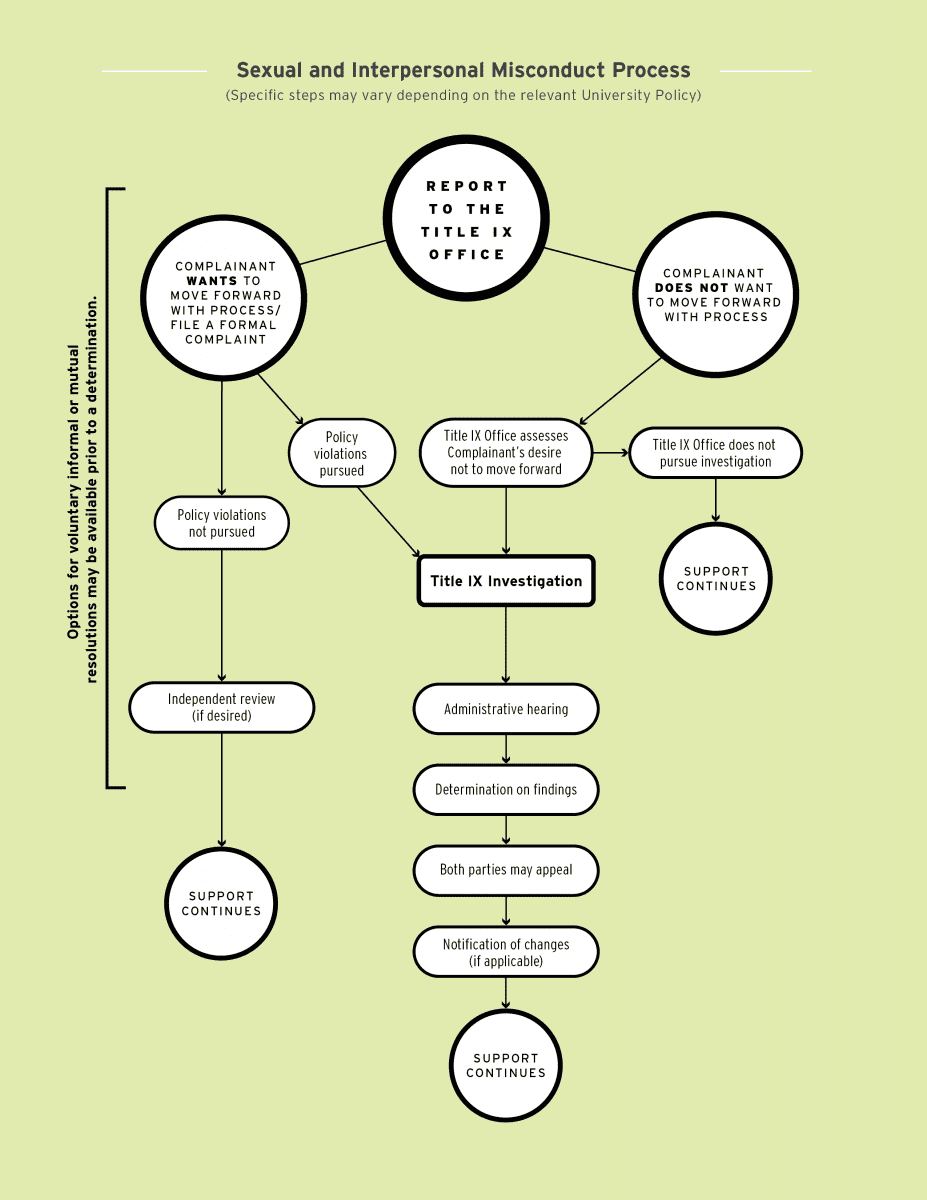What Happens After a Report Has Been Submitted?
Supportive Measures and Interim Measures
Once an incident has been reported, the Title IX Coordinator or Case Manager will arrange for supportive measures for the Complainant as needed. The Title IX Coordinator or Case Manager will be responsible for contacting faculty, the Department of Housing and Residence Life, and any other relevant parties to make necessary accommodations, such as changes to academic, University housing, transportation, or University employment arrangements. The Title IX Coordinator or Case Manager can also coordinate arrangements with the Office of Disability Services and/or the Office of International Programs, as necessary.
The Title IX Coordinator or Case Manager will assist the Complainant in connecting with both on-campus and off-campus resources, including counseling, health, mental health, victim advocacy, legal assistance, and other services, if requested. Please see the Interpersonal Violence Resource Guide for many of these on- and off-campus resources.
If the Complainant or Title IX Coordinator decides to move forward with an investigation or other resolution of the case, the Title IX Coordinator or Case Manager will contact the Respondent to offer similar supportive measures, including the accommodations and resource referrals listed above.
Depending on certain factors, the Title IX Coordinator in consultation with other University officials may determine that interim suspension of or administrative leave for the Respondent is also appropriate.
Depending on the type of alleged conduct, a Complainant may need to file a formal complaint with the Title IX Office (a simple online form) in order to move forward with an investigation or other resolution. A formal complaint is not necessary to receive supportive measures.

Formal Title IX Investigation/Conduct Procedures
The University is committed to fostering an environment that encourages prompt reporting of all types of sexual and interpersonal misconduct; a timely response to reports; the provision of equitable support services and resources; and a fair, impartial, and equitable investigation and resolution process. The University strives to investigate and resolve cases of alleged sexual and interpersonal misconduct within sixty (60) days of the initial report, excluding any appeal(s). In the University’s experience, however, circumstances including, but not limited to, parallel criminal investigations, multiple witnesses, and difficulties within availability and scheduling of parties and witnesses often exist; therefore, many cases may take longer to be resolved. If the proceedings take longer than one hundred twenty (120) Days, the Title IX Office will provide a written explanation to all parties as to the reason(s) for the delay.
At any time prior to a determination on responsibility, a University official may be able to facilitate a resolution between a Complainant and a Respondent. That resolution process is completely voluntary and does not require face-to-face interaction between parties.
Once the investigation process is initiated, a trained staff member (called the Title IX Investigator) will talk with the Complainant and the Respondent separately in order to gather facts surrounding the incident in question. The Title IX Investigator will also interview any witnesses who are identified by the parties and gather other physical and documentary evidence. Throughout the process, both the Complainant and the Respondent are entitled to the same rights and opportunities, including having an advisor, attorney, or non-attorney advocate present at any related meeting or decisions, providing evidence to support their side, reviewing the information on which a decision will be based, and appealing any decisions.
A Respondent is responsible for a violation of University policy if the evidence shows that it is more likely than not that they committed the violation (also called “preponderance of the evidence”). If a case is not resolved prior to a hearing, a trained hearing officer will make a determination on responsibility and a recommendation on sanction(s), which can be appealed. The Complainant and the Respondent will be simultaneously notified, in writing, of:
- the outcome of the process,
- the procedures for each party to appeal the results,
- any change to the results prior to the finalization of the results, and
- when the results become final.
The formal grievance process provides a prompt, fair, and impartial investigation and resolution to complaints. The University officials involved in the process have received annual training on the conduct process and specialized training surrounding sexual misconduct, dating violence, domestic violence, and stalking cases. These officials include investigators, facilitators, hearing officers, staff advisors, and appellate officers.
